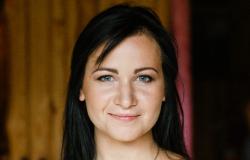Ādaži Secondary School is the largest educational institution in Latvia. More than 2,000 students study here, but there are also concerns about how successful the refusal to learn the Russian language will be. Not because the school is against this reform – the school is worried about whether it will be able to find the necessary language teachers.
“We have had active vacancies for second foreign language teachers for a year and a half. We would really like a French or Spanish language teacher, but the teachers do not apply to us, and this is a very big challenge and a very big concern,” says Solvita Vasilevska, principal of Đadažu High School.
Currently, around 70% of students in Adaži have chosen Russian as their second foreign language, which means that at least six new foreign language teachers will have to be found in the next few years. The second choice is currently the German language, but teachers of these subjects are also not easy to find, while the two existing ones are already fully occupied.
“There is more to take, no. According to the law of all this, we can no longer take away. We need more colleagues. And we would be very happy if we had colleagues for other European languages as well. In order to offer students a greater choice, so that it is not only German,” says Baiba Lauska, a German language teacher at Đadažu Secondary School.
The school also admits that, in fact, additional resources for learning foreign languages will be needed even sooner than in 2026. Currently, the Saeima has already adopted amendments in the 2nd reading, which allow parents, when applying to the school, to refuse to learn the Russian language from the next school year. And this means that new foreign language teachers will be needed already in September.
Content continues after commercial
Advertising
“There are many parents of students who want to give up Russian and switch to this second foreign language. And the demand for a second foreign language is quite high. And yes, there is a kind of pressure from the parents on the management of the educational institution, which is what we do to attract these teachers,” says the director of Đadažu Secondary School.
The Ministry of Education also understands the concerns of schools. Its estimates show that almost half of Latvian schools currently learn Russian as a second foreign language. In addition, some educational institutions do not offer any other alternative. Minister Anda Čakša (JV) states that he is planning various measures, including cooperation with the embassies of European countries, so that new foreign language teachers enter schools in sufficient numbers.
“It’s complicated, it’s a very large-scale reform while going along with this single school model. But I think this is a very important process, considering that we are supporters of Western values, and at a time when there is a war in our neighbors, we cannot afford this common practice that only the second foreign language is Russian,” said Chaksha.
At the same time, the ministry also rejects the widely heard statement that these amendments would limit the right of students to preserve and develop their native language, as students will still be allowed to learn Russian in groups.
Report an error in the article
Highlight the incorrect text and press Ctrl+Enter.
Mark the wrong text and report it!
Tags: Educational institutions worried finding European language teachers
-





